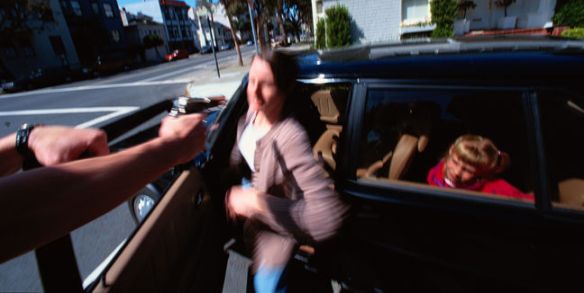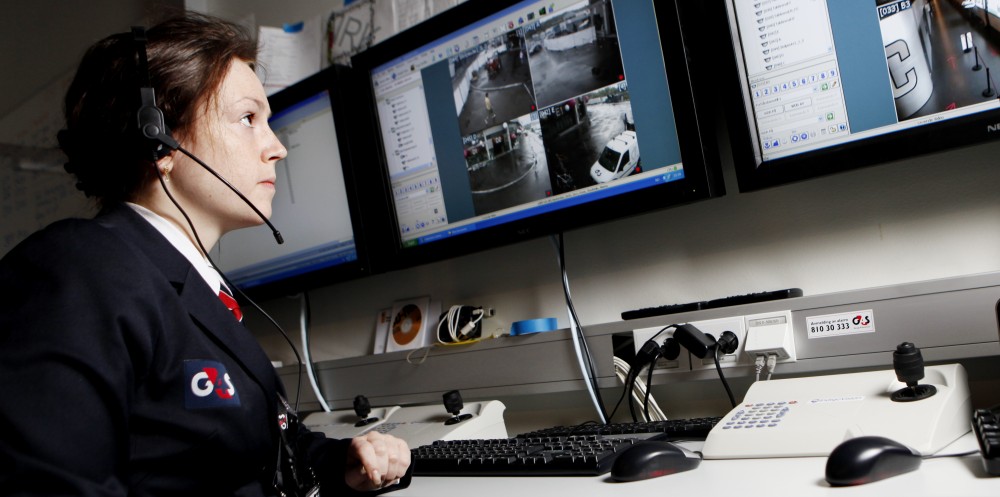 Women are the most exposed to experiencing violent situations on the streets. While crime victims are distributed in similar proportions among the genders, women are more prone to robberies and snatches. Women’s physical characteristics, lower chances of having violent reactions and the frequency in which they move around with children are the factors that make them more vulnerable. Women also have an added fear, sexual violence, a specific risk rather than a sensation that limits them when moving around town and in places considered risky for their physical integrity. In this issue, G4S Venezuela addresses this matter that affects women directly by offering preventive safety recommendations in order to help reduce their risk of becoming victims of violent crimes.
Women are the most exposed to experiencing violent situations on the streets. While crime victims are distributed in similar proportions among the genders, women are more prone to robberies and snatches. Women’s physical characteristics, lower chances of having violent reactions and the frequency in which they move around with children are the factors that make them more vulnerable. Women also have an added fear, sexual violence, a specific risk rather than a sensation that limits them when moving around town and in places considered risky for their physical integrity. In this issue, G4S Venezuela addresses this matter that affects women directly by offering preventive safety recommendations in order to help reduce their risk of becoming victims of violent crimes.
For women, the way to work, waiting for the bus, moving around in their vehicles, going to the supermarket, the mall, or back home are the riskiest moments; men, in turn, are mainly victims of crime at night or during weekends. In most cases, women change their usual routes by instinct or have someone accompanying them to avoid being jumped by criminals. This is a very particular way of using the conservation instinct women usually follow.
According to the National Survey on Victimization and Citizen’s Perception of Safety 2009, prepared by the National Institute of Statistics (INE), 33.97% of Venezuelan crime victims were women. However, many of the crimes, in the case of women, are not reported, so we can assure the real number of victims is much higher than the one reported in official statistics.
The most common crimes suffered by women are: Sex abuse 89.57%, fraud 47.81%, threats and personal injuries 41.61% and 51.54% respectively, theft 39.83%, kidnapping 25.66% and murder 18.87%.
As to sex abuse, most cases, 77.06%, involve women between the ages of 25 and 44, in time periods between 12:00 pm and 6:00 pm (49.63%) and in their area of residence (42.72%).
As preventive measures to take in helping to avoid the crimes specified in the statistics above, G4S Venezuela has compiled a series of recommendations that you can consider if you find yourself in a risky situation:
Prevention on the street
- If you become aware that someone is following you, try to find a crowded place to protect yourself from such threat.
- Avoid walking in dark areas or deserted streets.
- If you are about to leave your home, office or the mall and notice something suspicious, tell this to the closest person to you who can help and don’t go outside.
- If you carry jewels or valuable items on the street, do not wear them ostentatiously. Being inconspicuous will help you go unnoticed.
- If your neighbor is victim of a crime or is in danger, warn others by shouting or making noises to discourage the criminals. If you hear this kind of alarm signs, imitate them.
- In case your house or your neighbor’s house has been robbed, call the police immediately. Try not to touch anything until the evidence has been collected.
- Do not fight or try to stop the criminals.
- If you are the witness of an illegal episode, try to gather as much information about the criminals as possible and report them.
- If a shooting takes place, quickly drop to the ground as close to a wall as possible.
What to do when you are the victim in a dangerous situation?
During an armed robbery:
- Stay calm.
- Collaborate with the criminal without opposing any resistance.
- Don’t look at the aggressor’s face in order to reduce his aggressiveness.
- Talk in a calm tone of voice, try not to shout.
- Avoid making sudden moves. According to statistics, 49% of criminals perform their acts while under the influence of drugs and psychotropic substances, therefore, they are not in full control of their actions and you might be the victim of an accidental gunshot.
Know that criminals always act at random, after they’ve quickly checked their next victim’s unawareness. For instance, walking on the street while talking on the cell phone automatically reduces your level of concentration, creating the perfect moment for criminals to take advantage of the situation.
During a rape attempt:
- When attacked by a rapist, even if you seem threatened, yell “fire” the first chance you get instead of asking for help. It is proved that people react to a “fire” warning faster.
- One of the main characteristics of certain sex offenders, especially those with mental disorders, is they prefer it when their victims resist or yell. Some possible ways to discourage them are faking to pass out or telling them you have a venereal disease or HIV AIDS.
- In case of being with a suspicious person in an elevator or a cramped space, look directly into his face and ask him something, such as the time. If this person wants to hurt you, he’ll probably feel discouraged for a fear of being easily identified.
- Rapes must be immediately reported to the competent authorities.
Where to call in case of emergency
Integral Emergency System: 171
Movistar: 911
Movilnet: *1
Digitel: 112
CICPC: 0800-2427224
Civil Protection: 0 800 558842
UCV CENTER FOR WOMEN STUDIES: free psycho-social and legal assistance and support in case of couples’ violence, sexual harassment and violation of women’s human rights. Av. Neverí. CC Los Chaguaramos, piso 10, of. 10-4. Caracas. (0212)6933286 and 3345456. cem_ucv@yahoo.com, http://www.ucv.ve/cem.
AVESA: psychological help in cases of domestic and sexual violence. Av. Anauco c/calle Roraima. Qta. Avesa, San Bernardino. Caracas. (0212)5518081 and 5510212. avesa1@cantv.net, http://www.avesa.org.ve.
ATTORNEY GENERAL’S VICTIM ASSISTANCE UNIT: Domestic violence reports. Av. Urdaneta. Caracas. (0212)5625737, 0800-FISCAL-0 (0800-3472250).
